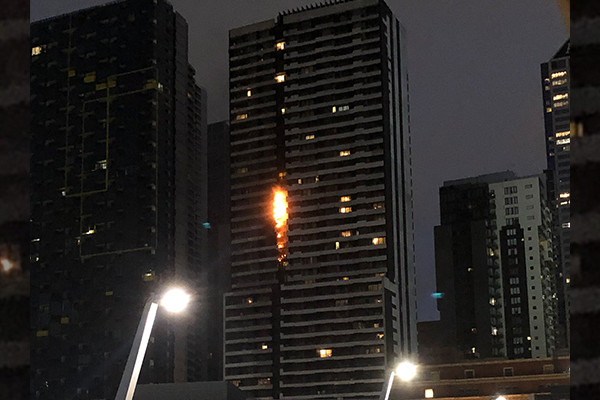State government ‘paying lip service’ on issue of flammable cladding, putting lives at risk

Apartment purchasers are unwittingly buying in to buildings with dangerous combustible cladding, due to state government failure to address the problem.
Justin Lawrence, partner at Henderson and Ball Lawyers, told 3AW Breakfast the government is “paying lip service” to the issue.
“They’ve instructed the Victorian Building Authority to undertake an audit of all buildings, but our firms acts for many owners corporations and I don’t know of one that’s actually had the audit undertaken,” he said.
“There’s a bit of posturing going on and not a great deal being done about it.
“Ultimately lives are being put at risk,” Mr Lawrence said.
The dangers of flammable cladding were highlighted in June 2017, when a devastating fire at Grenfell Tower in London killed 72 people.
In February this year fire also ravaged the 41-storey Neo200 apartment building on Spencer Street in Melbourne’s CBD, pictured above, which used the same type of cladding as Grenfell Tower.
There is no publicly available register of buildings with flammable cladding, but the Commonwealth Bank has today backed the creation of a searchable public register of buildings which have the dangerous material on them.
Current Section 32 requirements do not require a vendor to disclose whether there is cladding on a building.
Mr Lawrence advised apartment purchasers to ask real estate agents whether or not there is combustible cladding on the buildings they’re inquiring about.
“If you get a wishy-washy answer we’re just telling people to walk away,” he said.
Mr Lawrence also advised buyers to have their lawyer add special conditions to their contract, which say that the vendor warrants that there is no combustible cladding on the building, so the purchaser has cause to sue the agent and the vendor if it turns out the property does have the dangerous material on it.















